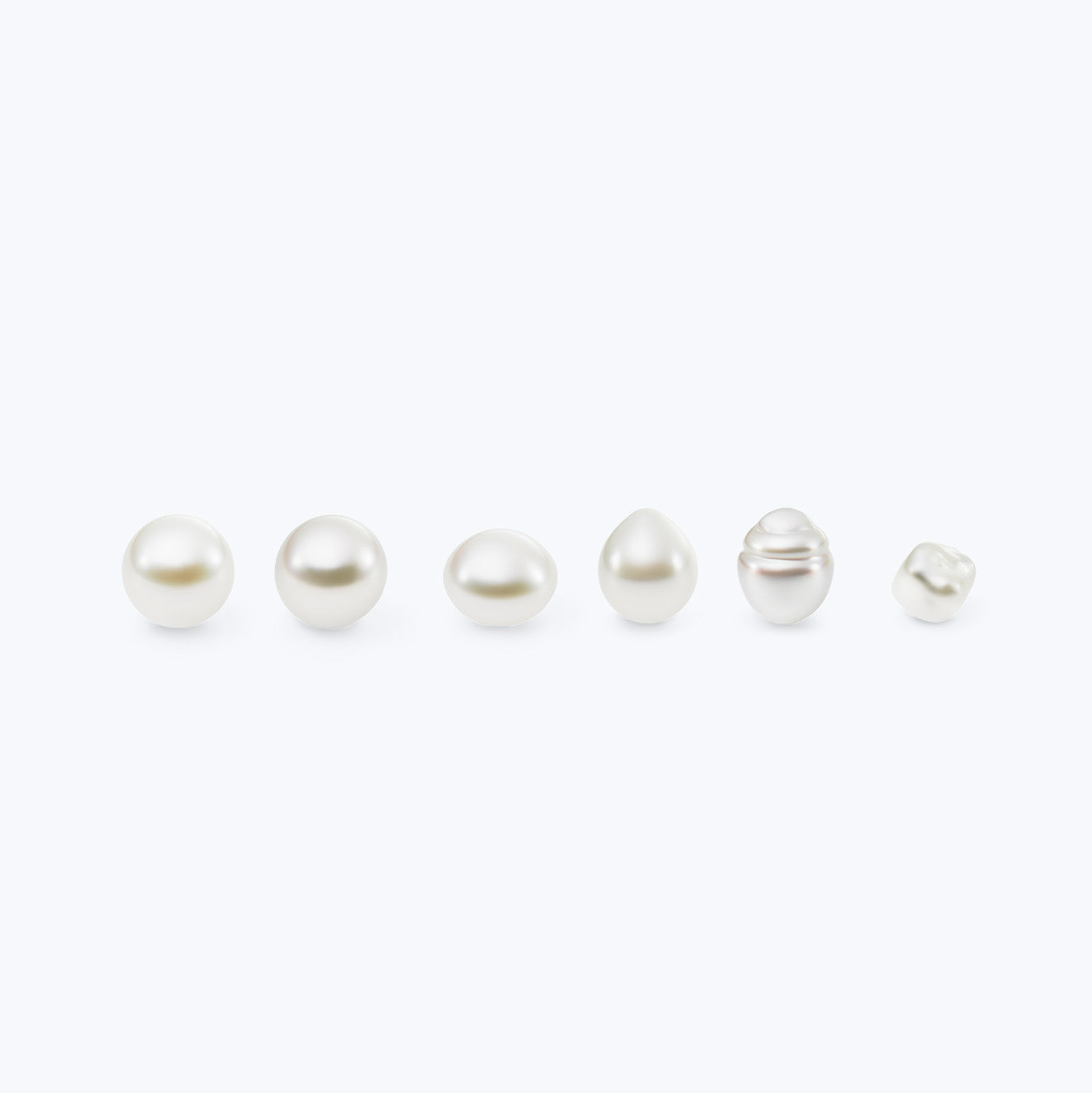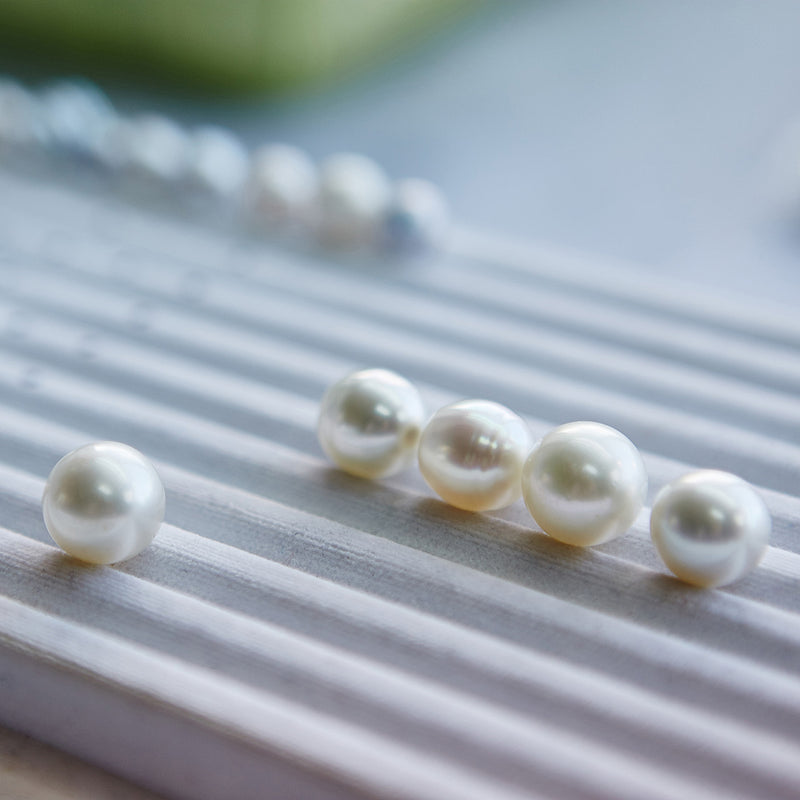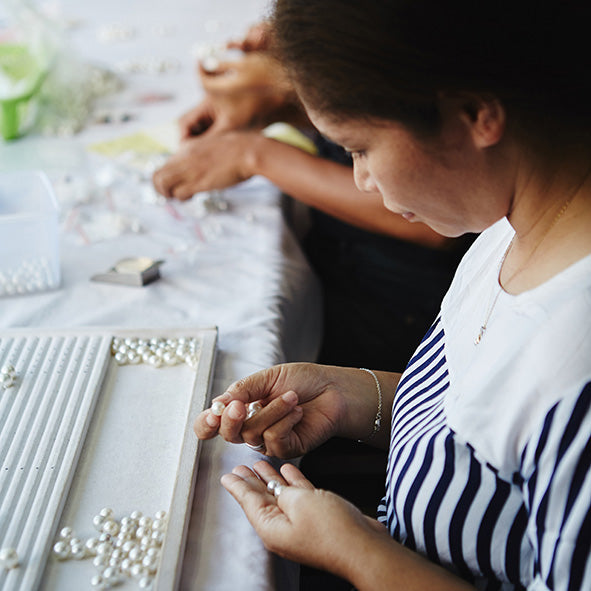Atlas Pearl Grading Standards

IHave you ever wondered how these pearls are graded to ensure quality and value? Let's delve into the process of South Sea Pearl grading, specifically focusing on how Atlas pearls expert graders grade over 600,000 pearls per year.
What is the Atlas Standard?
Unlike diamonds, pearl grading is not bound by a universal standard, which can sometimes make comparisons difficult. At Atlas Pearls, we pride ourselves on the trust we build with our customers by upholding grading practices that are clear, consistent, and transparent. Our commitment is not only to the beauty of each pearl, but to the satisfaction and confidence of every customer who treasures it.
A comprehensive grading system is used by Atlas Pearls, as leading producer of South Sea pearls. This system evaluates various factors of each pearl, including size, shape, colour, lustre, and surface quality. By meticulously assessing these characteristics, Atlas pearls ensures that all pearls are graded accordingly.
Our Process
Once harvested from one of our eight pearl farms in the pristine waters of Indonesia, each pearl receives an initial grade from our farm teams. After the harvest is complete, the pearls are carefully transferred to our Head Office in Bali, where our expert graders begin a meticulous process. The pearls are first gently cleaned with a light tumble never treated preserving their natural beauty and integrity. Using specialised sieves, the team then separates the pearls by size before grading and parcelling them according to their other defining qualities. This process ensures that every Atlas pearl is celebrated for its unique character.
The Importance of Grading
South Sea pearl grading is essential in the world of fine jewellery. For those purchasing pearls, understanding grading ensures confidence in selecting pieces that truly reflect the quality and
beauty they desire. At Atlas Pearls, we see grading as more than a technical
process it is our promise of transparency, trust, and value. Ensuring every piece of jewellery meets the highest standards of elegance and craftsmanship.
Atlas Pearls' Commitment to Quality
With over 600,000 pearls graded per year, Atlas Pearls upholds a reputation for excellence in the industry. By adhering to the rigorous standards of grading, we consistently deliver pearls of
exceptional quality to customers worldwide. This commitment to quality assurance sets Atlas Pearls apart as a trusted source for South Sea pearls.
In conclusion, South Sea Pearl grading,
particularly through the Atlas Standard, plays a crucial role in maintaining
the integrity and value of these precious gems. By understanding the grading
process and criteria, buyers can navigate the world of South Sea pearls with confidence, knowing they are investing in top-tier quality.
At Atlas Pearls, precision and expertise are at the heart of South Sea pearl grading.



How are Pearls Graded?
At Atlas Pearls, precision and expertise are at the heart of South Sea pearl grading. Each pearl is carefully examined by our skilled graders across a number of key qualities:
Quality, How It’s Assessed, Typical Range / Categories
Size: Measured in millimetres, 8mm – 20mm (South Sea pearls are among the largest in the world)
Shape: Categorised by overall form, Round (RD), Semi-Round (SR), Drop (DP), Short Drop (DS), Oval (OV), High Button (BH), Flat Button (BF), Baroque (BQ), Circle (CR), Keshi (KS), Necklace (NL)
Colour: Evaluated by hue, tone, and saturation, White, Silver, Silver Mix, Coloured, Fancy, Gold, Light Gold. Atlas pearls specialise in producing White and Silver South Sea Pearls.
Complexion: The complexion or skin of the pearl can vary from a clean flawless ‘A grade’ pearl, through to a ‘C grade’ pearl, which may have obvious spots or pits around a large part of the surface area.
Lustre: Lustre refers to the inner glow or shine of the pearl that truly brings this ocean gem to life. It varies from pearl to pearl depending on the thickness and tightness of the layers of nacre that surround the pearl. Of these five variables that influence a pearl’s individual desirability, this is perhaps the most important. Atlas grading takes account of both skin complexion and lustre.
Every pearl’s individuality is celebrated through this process, with grading designed to highlight its natural beauty and provide clarity and confidence for our customers.



